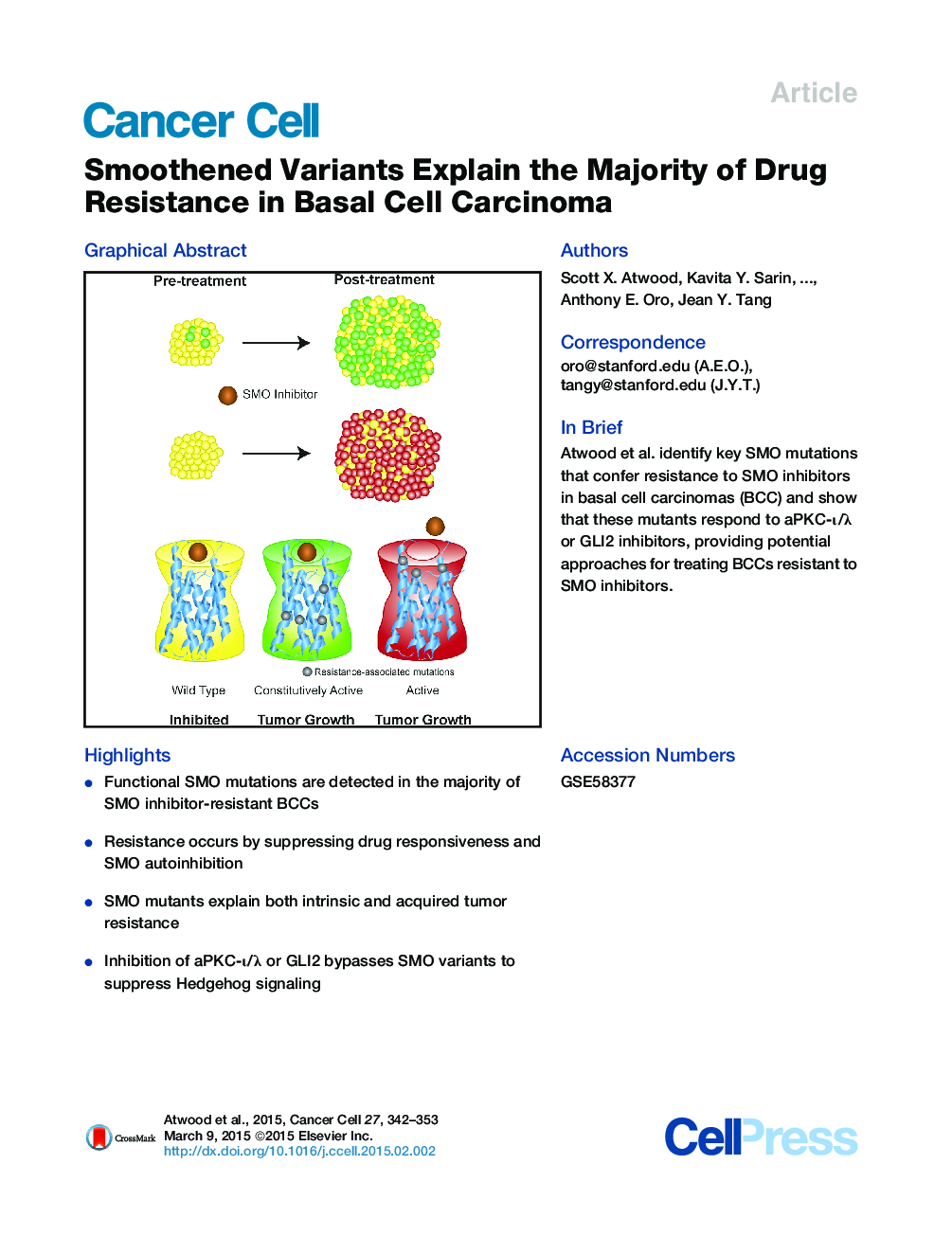| Article ID | Journal | Published Year | Pages | File Type |
|---|---|---|---|---|
| 2107039 | Cancer Cell | 2015 | 12 Pages |
•Functional SMO mutations are detected in the majority of SMO inhibitor-resistant BCCs•Resistance occurs by suppressing drug responsiveness and SMO autoinhibition•SMO mutants explain both intrinsic and acquired tumor resistance•Inhibition of aPKC-ι/λ or GLI2 bypasses SMO variants to suppress Hedgehog signaling
SummaryAdvanced basal cell carcinomas (BCCs) frequently acquire resistance to Smoothened (SMO) inhibitors through unknown mechanisms. Here we identify SMO mutations in 50% (22 of 44) of resistant BCCs and show that these mutations maintain Hedgehog signaling in the presence of SMO inhibitors. Alterations include four ligand binding pocket mutations defining sites of inhibitor binding and four variants conferring constitutive activity and inhibitor resistance, illuminating pivotal residues that ensure receptor autoinhibition. In the presence of a SMO inhibitor, tumor cells containing either class of SMO mutants effectively outcompete cells containing the wild-type SMO. Finally, we show that both classes of SMO variants respond to aPKC-ι/λ or GLI2 inhibitors that operate downstream of SMO, setting the stage for the clinical use of GLI antagonists.
Graphical AbstractFigure optionsDownload full-size imageDownload high-quality image (193 K)Download as PowerPoint slide
